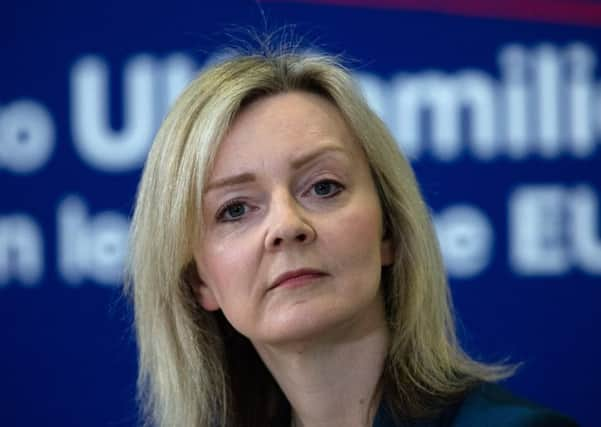Thinking CAPs on for a plan to support farming


But while the three-ring political circus at Westminster might have provided a minor distraction in the days since the referendum, we are not one step closer to knowing what the future holds for farming than we were as we stumbled around in dazed shock at the Highland Show on the day the vote result was announced.
And all the signs are that the country will remain effectively rudderless and lacking direction until the autumn at least.
Advertisement
Hide AdAdvertisement
Hide AdHowever, last week there were signs that, away from the political classes, some of the country’s organisations were beginning to marshal their thoughts. While there might be no immediate benefit from drawing up a list of demands, defining what are likely to be the key aspects to be grasped during the protracted negotiation period with Europe at least provides an outlet for growing anxieties.
The tail-end of last week saw NFU Scotland pitch in with its first round of thinking on the matter when its board drew up an initial wish list for ensuring a prosperous future for Scottish agriculture.
The list contained few surprises and might have been guilty of throwing in everything including the kitchen sink. However, rather than dwelling on support measures, the main thrust of their argument covered a wide range of trading requirements.
Access to European markets, free from tariffs and other barriers; continued recognition of the protected geographical indication status of Scotch beef and lamb; continued access to our labour market for the foreign workers so crucial for the fruit, veg and meat processing industries; less red tape; science-based decisions on technologies such as crop protections products; effective advisory services; public procurement to focus on home-grown food; and regulation to ensure clear country of origin labelling on all food were all among the key demands.
But while a plea for maintaining the current support arrangements until 2020 – which would effectively take us through the end of the current round of the Common Agricultural Policy (CAP) – was also on the list in order to provide “an anchor of stability” in the short term, little was said on what support measures would be required beyond that date.
While this omission might seem a bit curious, it would be fair to say that the enormity of such a task is likely to require slightly more than fortnight’s worth of thought. For it means getting to grips with what either a British or a Scottish Agricultural Policy should look like – effectively drawing up the “Plan B” which we were so adamantly assured by the UK government’s Defra secretary, Liz Truss, would never be required.
And while one would hope that this show of complacency from a government department is now being rectified, nothing new has yet been aired in private, let alone public.
Despite the glib promises that farming would be looked after made by the leading lights of the Leave campaign – the majority of which now seem to have gone out – there has been nothing to reverse the pre-vote thinking that while some support might continue, in all likelihood this will, at best, be a fraction of what it was.
Advertisement
Hide AdAdvertisement
Hide AdThe “cold bath” scenario of dropping support altogether – as was adopted in New Zealand in the 1980s – might have a sufficiently masochistic public school ring about it to seduce some free-marketeers on board. But, as has often been said, Scotland, or the UK, ain’t New Zealand.
And while you have to tip your hat to that country for coming out the other side so successfully, there’s little chance of the same wider political sympathies – which included a massive currency devaluation – being given to farmers in this country.
So, set as we are to wave farewell to 43 years of European farm support, it’s definitely time to don the thinking CAP.
